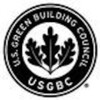I know several people who opted in but never completed the 30 hours of continuing education in the required 2 year period and now have expired specialties. Will these people be treated like all of the other Legacy APs and allowed to opt in again? Or have they used up their chance?
You rely on LEEDuser. Can we rely on you?
LEEDuser is supported by our premium members, not by advertisers.
Bill, those people have a fresh shot.
Hi Bill, Tristan is correct. They can access instructions on how to upgrade again via this link: https://new.usgbc.org/leed/credentials/leed-ap/upgrade
Like the extending of the vote on LEED v4, it shows a high level of responsiveness to members by the USGBC. I like it.
I am a LEED AP BD+C. I am not a design professional although I do have an engineering degree I've never used. My career took me in a different direction into technical sales/consulting in a number of technical fields.
I care a lot about LEED. In less than twelve months I have far exceeded the 30 hour requirement for CMPs through continuing ed, webinars and extensive volunteering with my local USGBC chapter through leading a LEED GA study program .and other activities. However, other than the required project experience, I have not gained any additional project experience.
Zachary, is it your contention that individuals like myself, who gained LEED AP specialty through extensive study and through legitimately meeting USGBC requirements, somehow devalue the prestige of the AP designation?
That seems to be what you are implying.
Do you feel that, say, professional city planners or code enforcement professionals who are not engineers or architects, but for whom green building knowledge and practice are of great value, devalue AP designation?
Is it your suggestion that USGBC's policy of inclusion, versus exclusion, of certain professions, serves to lessen the legitimacy of an AP accreditation?
Is it your contention that the passion of a non-design professional who stays involved and educated on green building principles and practices contributes less value to the USGBC "brand" or image than a licensed design professional who earns AP accreditation and does nothing with it?
I admit these are questions that concern me as a non-design professional looking to contribute in some way to the advancement of sustainable building practices and to earn a living from it, at least in some small way.
I suggest, from my perspective, your view is somewhat jaded and possibly shared by many of equal professional standing. I am not naive to the idea these attitudes exist.
Just take caution that it does not serve as a means to discourage well minded professionals from other fields who can potentially contribute great energy, passion and insight to a flawed, but evolving discipline.
Here is my contention.
LEED AP does not equal LEED AP (speciality) yet for most layman it does as I contend they do not know the difference.
LEED AP can sit do nothing and still claim LEED status. LEED AP (speciality) have to do something but can still do the same.
I contend the arbitrary nature of the LEED AP status not having to get CEU (which can cost a lot of money and personal time) and paying a fee is unfair given the LEED AP (specialty) does.
This is not I personally do x,y,z to stay current this is about what you have to do to maintain a status.
Let me tell you what is really ugly about LEED AP maintenance hours. I have been victimized by well-known architects and owner who are LEED APs with specialty.
After doing all of the work to document a project, some of these APs have attempted to claim credit hours as LEED Project Administrators and have done nearly nothing on the project. They have also attempted to claim continuing hours for specific credits by insisting they can enter the final data into the LEED Forms, without having collected the information, and not knowing how the information should be entered into the form.
The above problem is occurring because some LEED APs are desperate to maintain their credentials, and have no desire to actually do the work. They want someone else to do their homework.
As far as I can tell, the GBCI does not want to get involved with this type of cheating. They leave the dispute up to the parties involved. Unfortunately, the GBCI policy is to always do what the owner wants. If the owner or Project Administrator is unscrupulous there is nothing you can do about it.
Many firms and owners are honest. I am starting to see some who are not.
Hernando, It does not surprise me that people "struggling" with ethics or desperate to maintain their credential in the 11th hour would do such things.
I would suggest this is something that would best be addressed in the design contract stage, i.e., closing a loophole, if you will. As unfortunate as it is to have to do something like that, it is no different than any other legitimate measure to protect one's 'intellectual property' in an agreement for services.
Looking at it from that angle, I would understand USGBC's hesitance to put themselves in between two parties in such a dispute. Otherwise, the entire enterprise would come to a screetching halt.
The GBCI has a lot of work to do to prevent false-claiming of maintenance hours from happening.
I have no need to keep the hours for myself. I am willing to give up hours but only if someone does a significant part of the work themselves. Significant means about 1/3rd to me for LEED documentation.
One of my green goals is teaching others how to document LEED credits on their own. It is truly ugly to find people who refuse to take me up on my offer, have me do the work, and then try to claim credit themselves.
Unfortunately, that is how "business" works in the real world. It should not be part of the green world, but taking credit for work done by others is starting to rear its ugly head.
As an interesting side note, I just got an email for a continuing education class taught by someone listing the following honors:
PE
Ph.D.
CIPE
CFPE
LEED AP
PE Civil
PE Electrical
PE Mechanical
The class is not one I would typically take, but it might be worth the $50 fee to find out what this individual has to say about sustainability.
With these recent changes, I am again considering a LEED specialty designation. However, in our practice, we do projects under BD&C and ID&C, and occasionally under EBOM. I would have to chose one. I COULD get them all, but the CE burden would be quite significant. If I were only to work on ID&C projects and not get project experience on a BD&C project in my two year window (or vice versa) where does that leave me if I select a specialty? The implication here is that professionals can only be good at one thing....why doesn't GBCI consider adding CE requirements and a fee to keep just the LEED AP designation as a more general category. That seems to be part of the issue in this whole discussion with the people who have chosen a specialty, that the legacy professionals are getting by too easily and not having to stay current. Believe me, if you don't stay current you probably won't get any work related to LEED, the competition out there is way too fierce.
I was one of the first five people to earn a LEED AP.
I could have retained the AP designation, and worked on LEED projects. What I would not be able to do is claim the LEED AP ID Credit. That required me to dumb down my credential.
I was a developer of LEED CI, as a volunteer to the USGBC, and I wrote more than 1/2 of the LEED CI Pilot Reference Guide, essentially for no fee. Still, the USGBC/GBCI require me to take the LEED ID+C exam and provide additional continuing education hours, evidently to prove I know something about ID&C.
I don't how what a legacy LEED AP like me is required to do by the USGBC/GBCI makes anyone think we are getting by too easily, and not staying current.
Hi Brian,
You can select the primary specialty that makes the most sense for you. Project experience is one of four ways to earn CE hours, but it is not required.
You can add additional specialties by taking the specialty exams. It would be another 6 hours of CMP every two years for each additional specialty.
We will not be changing the terms and conditions of the LEED AP designation. However, we agree with you that the specialty AP and CMP is the best way to show your knowledge is current in the competitive market landscape.
I am happy to see streamlilned CE Reporting and simplified eligibility requirements. I am a LEED AP BD+C and am into my third reporting period having just submitted my latest 30 CE hours and $50.
I am not sure how I feel about the 'Legacy LEED APs' now being able to watch a webinar to meet their prescriptive requirements. Everybody had the same opportunity to 'opt in' and some chose not to. Since 2009 those of us with Specialties will have documented between 30 and 60 CE hours to 'earn' and keep our Specialties. I think this kind of devalues the credential.
I will be happy to see all these Legacy LEED APs "opt in". Yes, there is dishonesty in reporting; yes, there is gaming of the system. But by requiring continuing education in the form of CMP, USGBC is incentivizing more people to keep their knowledge-base current, and maybe even understand and actually practice the principles of sustainable design. The ultimate goal is to improve how we build for the future - and encouraging sustainability literacy - not just knowledge of LEED project administration - is one more way to get us there.
My specialty just lapsed and I am out of the grace period, but I have enough project experience and credits to have renewed. Is there anyway to do this retroactively?
On its face, it depends on when your credential expired and whether or not you earned the credits during your two year reporting period. There are hardship circumstances GBCI will consider.
http://www.gbci.org/cmp/fees-and-renewal.aspx
Add new comment
To post a comment, you need to register for a LEEDuser Basic membership (free) or login to your existing profile.







